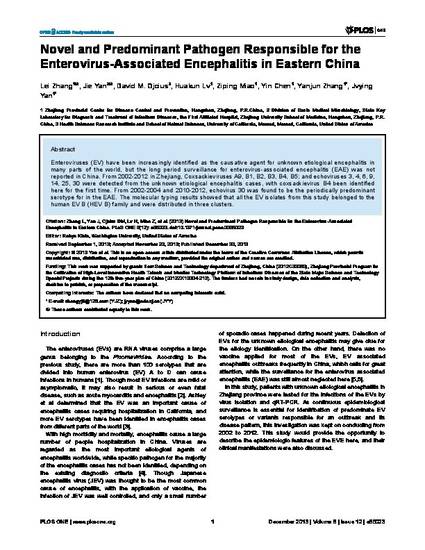
Enteroviruses (EV) have been increasingly identified as the causative agent for unknown etiological encephalitis in many parts of the world, but the long period surveillance for enterovirus-associated encephalitis (EAE) was not reported in China. From 2002-2012 in Zhejiang, Coxsackieviruses A9, B1, B2, B3, B4, B5; and echoviruses 3, 4, 6, 9, 14, 25, 30 were detected from the unknown etiological encephalitis cases, with coxsackievirus B4 been identified here for the first time. From 2002-2004 and 2010-2012, echovirus 30 was found to be the periodically predominant serotype for in the EAE. The molecular typing results showed that all the EV isolates from this study belonged to the human EV B (HEV B) family and were distributed in three clusters.
Available at: http://works.bepress.com/david-ojcius/172/
